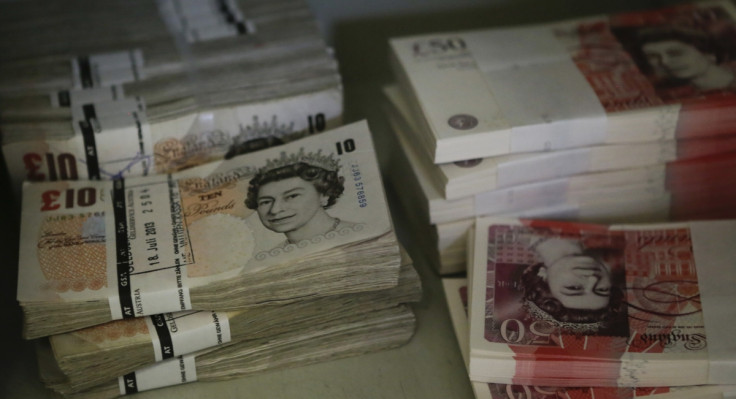Sterling Drops After Industrial Output Data as Fed Likely to Hike Rates Sooner Than BoE

The British pound dropped on Tuesday as the industrial output data surprised on the lower side while a view that the Federal Reserve is likely to start hiking rates sooner than the Bank of England led speculators to add downside bets on the UK currency.
Industrial production in the UK grew 2.5% from a year earlier in August, faster than the July growth of 2.2%, but trailing market expectations of 2.6%. Month-on-month, there was no change in the output after a 0.4% rise in July.
The manufacturing output showed faster growth of 3.9% year-on-year from 3.5% in July, but the month-on-month growth slowed from 0.3% to 0.1%.
GBP/USD slipped to 1.6026 after the data, from the previous close of 1.6083. The pair seems heading back to the 11-month low of 1.5954 touched on Monday.
The US dollar, which has been on the rise over the past few months, got a big boost from the labour market data on Friday, increasing the pressure on other major currencies actively traded against the greenback.
Compared to the majors like the euro, yen and the Swiss franc, the pound was better placed against the dollar considering the growth and interest rate outlook for the UK.
However, the big upside surprise in the US non-farm payrolls data for September shifted focus to the US as the next major economy likely to start hiking rates.
The US added 248,000 non-farm jobs in September, much higher than the previous month's 142,000 and beating analysts forecast of 215,000, data showed on Friday. The unemployment rate fell below the 6% mark to 5.9%.
The UK pound was the worst hit in the NFP week; it dropped to an 11-month low of 1.5952 on Friday, down 1.68% in the week.
According to the CoT (Commitments of Trade) data of CFTC, the net non-commercial positions on Sterling was a multi-year high of 56,412 as on 1 July but it fell to 3,589 as on 30 September, indicating the shifting of speculators' interest towards sell-side bets.
With no major data point scheduled for the US this week, the market focus will be on Sterling, also because of important events like the BoE rate decision and August trade data.
© Copyright IBTimes 2024. All rights reserved.






